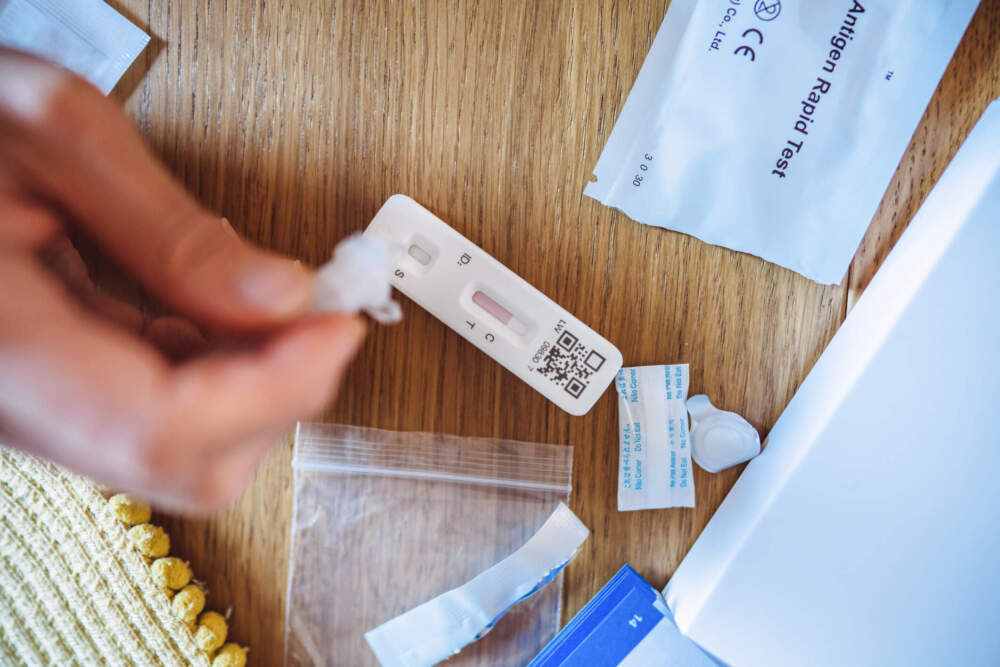Advertisement
COVID rates are ticking up in Mass. Thanksgiving may not be the only reason

After fluctuating for weeks, COVID rates are ticking up again in Massachusetts.
The level of virus in Boston-area wastewater increased from the days before Thanksgiving to just after. And holiday gatherings may be one reason for the uptick, according to experts.
"There’s clearly people in the community becoming infected," said Dr. David Hamer, professor of global health at Boston University. "I’ve seen patients and heard lots of anecdotes of friends and family that have become infected."
Despite the recent increase, data from state officials indicates COVID levels remain low overall — especially when compared with previous surges. Infectious disease experts said the impact of the virus is no longer severe for most people, likely because of built-up immunity from prior infections and vaccinations.
Last week, 1.5% of hospital emergency department visits were related to COVID, a lower percentage than at the same time last year. Another 1.1% of visits were related to respiratory syncytial virus, or RSV, and 0.5% were for flu, according to the state Department of Public Health. Emergency department visits for all three viruses have increased gradually over the past few weeks.
Dr. Shira Doron, hospital epidemiologist at Tufts Medical Center, said COVID does not appear to be following predictable seasonal patterns yet. She noted that the level of virus in wastewater was rising steadily even before Thanksgiving. And unlike previous holiday seasons during the pandemic, when so many people limited contact with others, she suspects most people have resumed their regular social activities. That means a holiday gathering may not be a big change from everyday life.
Another factor that affects the transmission of COVID is the dominant variant at any given time.
Advertisement
"It's not necessarily clear whether the reasons for the ups and downs that we see with COVID are the same reasons for the ups and downs that we see with the other viruses," Doron said.
COVID, flu and RSV are expected to increase in the winter months, though experts said it's hard to predict how much each virus will circulate and when each will peak. For now, Doron said, "we’re seeing a gentle rise" in respiratory infections overall.
Vaccines could help blunt the impact of COVID, flu and RSV, but uptake of these vaccines has been relatively low. Almost everyone 6 months and older is eligible for COVID and flu vaccines, but just 15% of Massachusetts residents have received the latest COVID booster, and 32% have received flu shots, according to state data.
The RSV vaccine is available only for certain people at higher risk of illness. And a new preventive treatment that protects babies from severe RSV is in short supply nationally.
Doron said people can also protect themselves by maintaining a healthy diet, exercising, managing stress and keeping chronic conditions such as hypertension and diabetes under control.
When people focus on newer strategies for preventing disease, such as masks, monoclonal antibodies and updated vaccines, "we forget about some of the basics," she said, "which is that the healthier you are, the better you will do when you get a respiratory virus."
Hamer recommended people at higher risk of illness, including those who are immunocompromised, take extra precautions in crowded places. This includes wearing a mask, he said.
"The most important thing — even though there are no mask mandates or vaccine mandates — is for those who are higher-risk to really be cautious in terms of public places, public transportation, stores — any place where there’s a lot of people."
